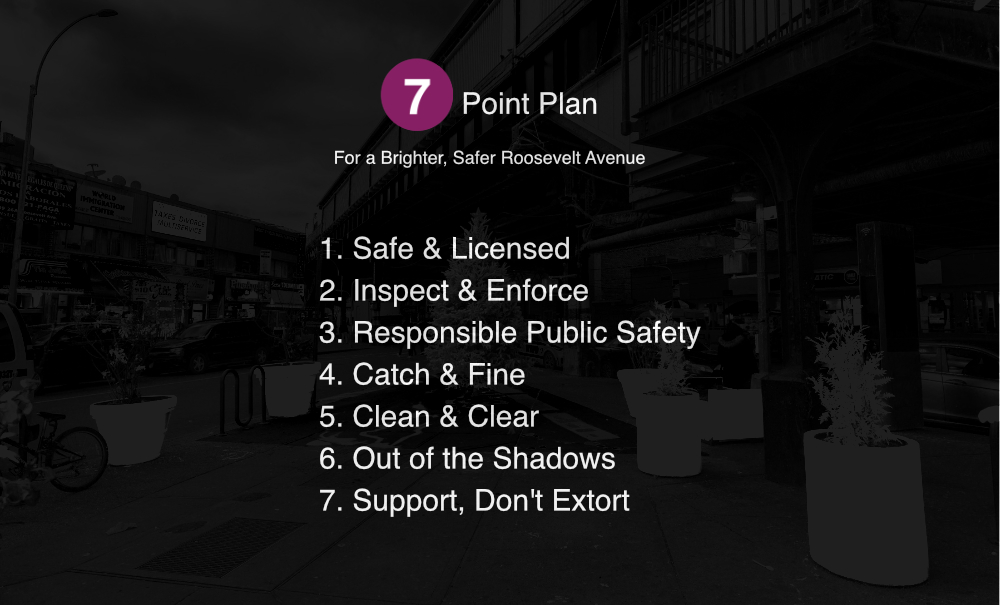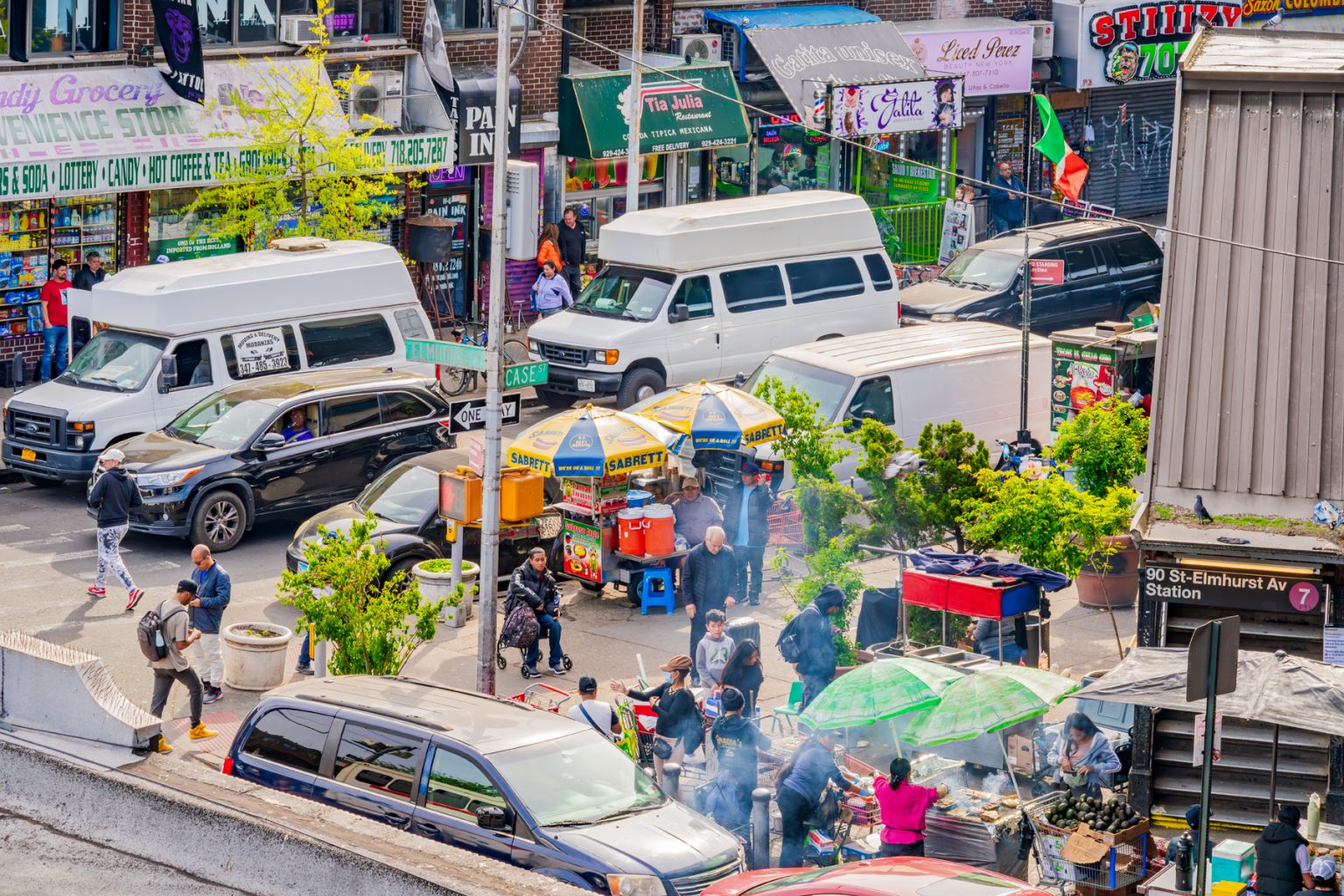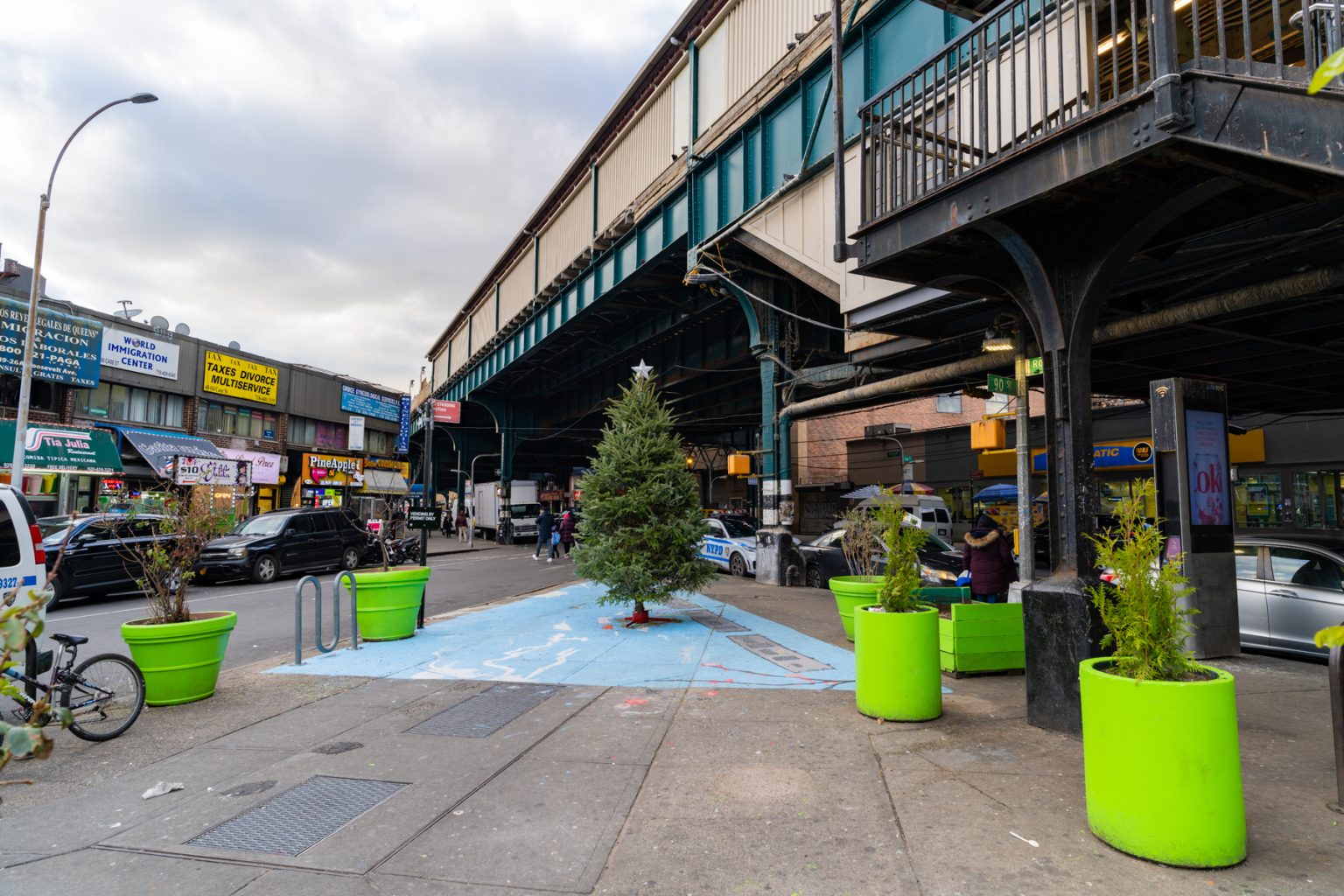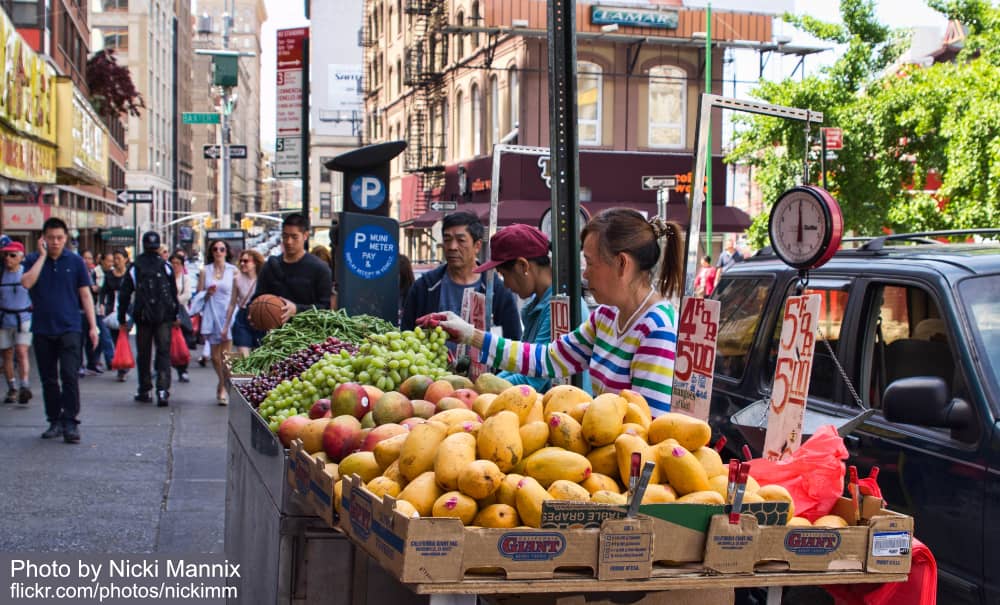
Dear friends,
As New York City sits on the precipice of the largest mass deportation in US history as threatened by Trump, the city’s Mayor—indicted under federal charges of corruption and abuse of power—sat down this week with incoming “border czar” Tom Homan. Discussion topic: Adams’ cooperation with the feds’ deportation plans. Already on record saying, “I’m not going to be warring with this administration, I’m going to be working with this administration,” Mayor Adams declared after the meeting that he will consider using executive power to change the city’s sanctuary laws to expedite deportations. Homan declared that the meeting “went great.”
Immigrant justice activists, including Make the Road NY and Adhikaar, rallied outside City Hall during the Adams-Homan meeting to oppose our city’s collaboration with Trump’s promised spectacle of punishment, caging, and exile.
JHISN will continue to highlight, and fight for, immigrant justice struggles as the enemies of justice gather power and popular support. This week’s newsletter reports again on the draconian Operation Restore Roosevelt and its militarized presence in our neighborhood. We then look at how national immigrant advocacy organizations are stepping up in the face of the incoming administration’s anti-immigrant violence and scapegoating.
Newsletter highlights:
- Roosevelt Avenue: new home for NYPD and NY state troopers
- Immigrant advocates gear up for the struggle
1. Political Fault Line on Roosevelt Ave.
Roosevelt Avenue, along with its plazas, has long been known for its vibrant street life. It’s a microcosm of working-class New York: a human tapestry of immigrant vendors from all over the world, creating an ever-changing, 24-hour open-air market and food destination in the shadow of the elevated 7 train. Today, the Avenue is mostly blank concrete and asphalt. And cops, hundreds of cops. Cops hassling street vendors and sex workers. Cops supervising the bulk seizure of unregistered e-bikes and mopeds. Cops just standing around, in pairs and groups, owning the street.
Answer Triangle, Roosevelt Avenue, May 2024
Answer Triangle, December 2024
This new, dreary, police state version of Roosevelt Avenue comes to us courtesy of Operation Restore Roosevelt, a 90-day enforcement crackdown previously described by JHISN (10/26/24). The crackdown is the brainchild of an energetic conservative initiative called the Let’s Improve Roosevelt Coalition, led by disgraced right-wing politician Hiram Monserrate, local church groups, embattled Mayor Adams, and City Councilmember Francisco Moya.
Operation Restore Roosevelt represents another advance for a spreading right-wing politics of respectability and scapegoating of recent immigrants. The current cop takeover of Roosevelt Avenue builds on an earlier conservative victory: largely destroying the internationally famous and much-loved vendor marketplace at Corona Plaza. Operation Restore Roosevelt is an even bigger spectacle of morality policing and criminalization, again directed at the poorest and most vulnerable immigrants in our community.
Acknowledging that there are long-standing problems with crowding and trash on Roosevelt, progressive politicians have attempted to get ahead of the conservative groundswell by promoting their own improvement plans for the Avenue. After Operation Restore Roosevelt was announced in mid-October, State Assembly member Jessica González-Rojas held a roundtable discussion on how to prevent sex trafficking in the community without police action. City Councilmember Shekar Krishnan and Assemblymembers Steven Raga and Catalina Cruz quickly announced a “7 Point Plan,” emphasizing social services, licensing, inspections and infrastructure improvements rather than massive police presence. Cruz told the Queens Eagle:
“I think historically, there has been a relationship of fear, and that’s the reality of the members of the community with the police. It cannot be the only measure or solution…because if the only approach is enforcement, we’re going to have the exact same result that we’ve had for the last 10 years.”
Conservative organizers told news outlet QNS that they “repudiated any efforts by ‘radical fringe groups’ to oppose the policing plan and ‘return control’ of Roosevelt Avenue to cartels and street gangs.” Nevertheless, the 7 Point Plan has had recent mainstream successes. It was endorsed by Leslie Ramos of the 82nd St. Business Improvement District. Also, Governor Hochul just agreed to provide a million dollars to support four local grassroots organizations in implementing the Plan. The organizations include New Immigrant Community Empowerment, AIDS Center of Queens County, Korean American Family Service Center, and Commonpoint.
It should be noted that Leslie Ramos and Hochul each originally supported Operation Restore Roosevelt––Hochul even supplied state troopers to beef it up. But they also are both aware that the police crackdown on the Avenue is due to end in January, while the 7 Point Plan aims for long-lasting solutions.
Looming in the background of the struggle over Roosevelt Avenue is the issue of big money real estate development. As JHISN previously reported, there has been major controversy over the proposed Metropolitan Park casino project, a giant development which would be adjacent to Roosevelt Avenue. The plan is slowly advancing, despite resistance by many progressives including State Senator Jessica Ramos. Part of the Senator’s concern about the plan, which a majority of her constituents oppose, is that it would bring the wrong kind of development and visitors to Roosevelt Avenue. “Why are casinos our prime economic development idea in New York City?”, she asks. Meanwhile, Mayor Adams’ new “City of Yes” housing plan, which was just passed by the City Council, eases zoning requirements and promotes larger scale real estate development along transit lines, such as the 7 train.
Battle lines on Roosevelt Avenue are being drawn according to where to assign blame for economic problems and quality of life issues. One group of activists has chosen to “punch down” at their most vulnerable immigrant neighbors, resorting to criminalization and demonization. While another group of activists is promoting social solidarity, demanding that all levels of government, community and business live up to their responsibility to provide work opportunity and social services in an environment free from repression and fear.
WHAT CAN WE DO?
- Consider volunteering with New Immigrant Community Empowerment (NICE) here in Jackson Heights.
- Subscribe to the Street Vendor Project’s newsletter.
2. Strategies for Future Immigrant Advocacy
“As the new Trump administration takes office, Adhikaar stands resolute in our commitment to grassroots organizing and providing essential, direct services to our community.” —Adhikaar Newsletter (11/15/24)
Last weekend the US president-elect stated clearly his intent to circumvent the 14th amendment in his pursuit to end birthright citizenship. This came after he proposed placing anti-immigrant hardliner and family separator, Tom Homan “in charge of our Nation’s Borders”. They plan to create the largest deportation force in US history, violating the rule of law, by using the US military on home soil despite knowing there are serious financial, legal, and logistical obstacles. Trump’s heartless strategy to avoid separating families that have a mix of undocumented members and citizens is to deport the entire family.
Also last weekend, in counterpoint, the National Immigration Inclusion Conference was held in Texas. The three-day gathering showcased immigrant groups’ intersectional approach to stand against the current and future administration. Building justice coalitions with unions and anti-racist, gender, housing, and youth groups, was a significant daily focus. Also on the agenda were sessions about turning arts and storytelling into impact strategies, examining how funders can support immigrant rights, and discussing various legal and mobilization strategies that the 1,500 people from 450 groups in attendance can implement.
Another organization that brings together immigrant advocacy support is Grantmakers Concerned with Immigrants and Refugees. At their two-day 2024 Convening, just a week before the election, they examined:
- the state of the immigrant justice movement
- power-building strategies
- how to intersect immigrant justice with racial justice
- strategies for amplifying groups historically excluded from philanthropic investment. They called on funders “to act boldly, moving beyond financial investments to leverage their privilege and power to tackle the challenges that deny individuals the freedom to stay, move, work, transform, and thrive.”
Immigration Equality is an intersectional advocacy group that focuses on immigration rights for LGBTQ and HIV-positive people in the US. They recently published their Strategic Plan for 2024-2026 which includes demands for equity, secure paths to safety for LGBTQ refugees, robust resources for legal and self-help, and training enforcement officers and judges. They also demand the release of all LGBTQ and HIV-positive people from immigration detention centers.
Simply put—immigrant advocacy organizations are not silenced by Trump’s election victory and vicious rhetoric. They continue to work and provide the support their communities need.
According to Naomi Braine, a longtime activist and sociologist at CUNY, any thought of “resignation and retreat” is largely confined to people “who have never been engaged with sustained forms of action and resistance”. The election, she says, hasn’t affected the immigrant rights movement as a whole. The President of the New York Immigration Coalition (NYIC), Murad Awawdeh, stated after the election, “We’re going to fight it…we’re as prepared, if not more prepared than the first time around.” He identified a three-prong approach: protests, local legislation, and lawsuits. Soon after that statement, NYIC published its 10-year Blueprint for Immigrant Progress and Justice. In November, Manuel Castro of NYC’s Mayor’s Office of Immigrant Affairs said they are working with all community groups and agencies to ensure everyone understands the sanctuary laws of our city.
New York Congressman, Adriano Espaillat, is running unopposed to lead the Congressional Hispanic Caucus in the next Congress. He has said he will oppose any efforts to pursue the additional threat of denaturalizations as promoted by American Firster Stephen Miller. “I think it’s a radical approach, one that is unprecedented in America, and I think that the vast majority of American people will oppose it as well.” The ACLU is also looking at various ways to oppose deportations. Their National Prison Project is looking to shine a light on the shadowy operations of the deportation machine. Using Freedom of Information litigation, the ACLU is preparing lawsuits against mass detention and deportation actions. One of the organization’s recent public record lawsuits demands more details about ICE Air, the government’s method for carrying out deportation flights.
To immigrant advocates, legal support, and immigrant rights groups, the threat of deportation and anti-immigrant rhetoric and legislation is simply not new. Advocates have been providing groups with Know Your Rights materials and are now adding to their presentations family safety planning. They also anticipate a marked escalation of what was seen during the first Trump administration. They anticipate drastic changes without any prior announcements from the administration and will rely on word of mouth as a way for people to learn about what is happening. As Adhikaar concluded in their newsletter:
“The election outcome is a reminder of the entrenched systems that seek to undermine the rights and dignity of marginalized communities…We refuse to let our communities be silenced or pushed into the shadows. Together, we will continue to build power, advocate for justice, and demand a future where all can thrive with dignity and self-determination.”
WHAT CAN WE DO?
- Sign and share the Immigration Justice Campaign‘s Congressional letter-writing petition urging the Biden administration to extend protections for vulnerable immigrants before the start of the second Trump administration.
- Circulate and share Make the Road NY’s Deportation Defense Manual.
- Share the eye-opening Timeline of immigration detention.
In solidarity and with collective care,
Jackson Heights Immigrant Solidarity Newsletter (JHISN)
Follow @JHSolidarity on Facebook and Twitter and share this newsletter with friends, families, neighbors, networks, and colleagues so they can subscribe and receive news from JHISN.


